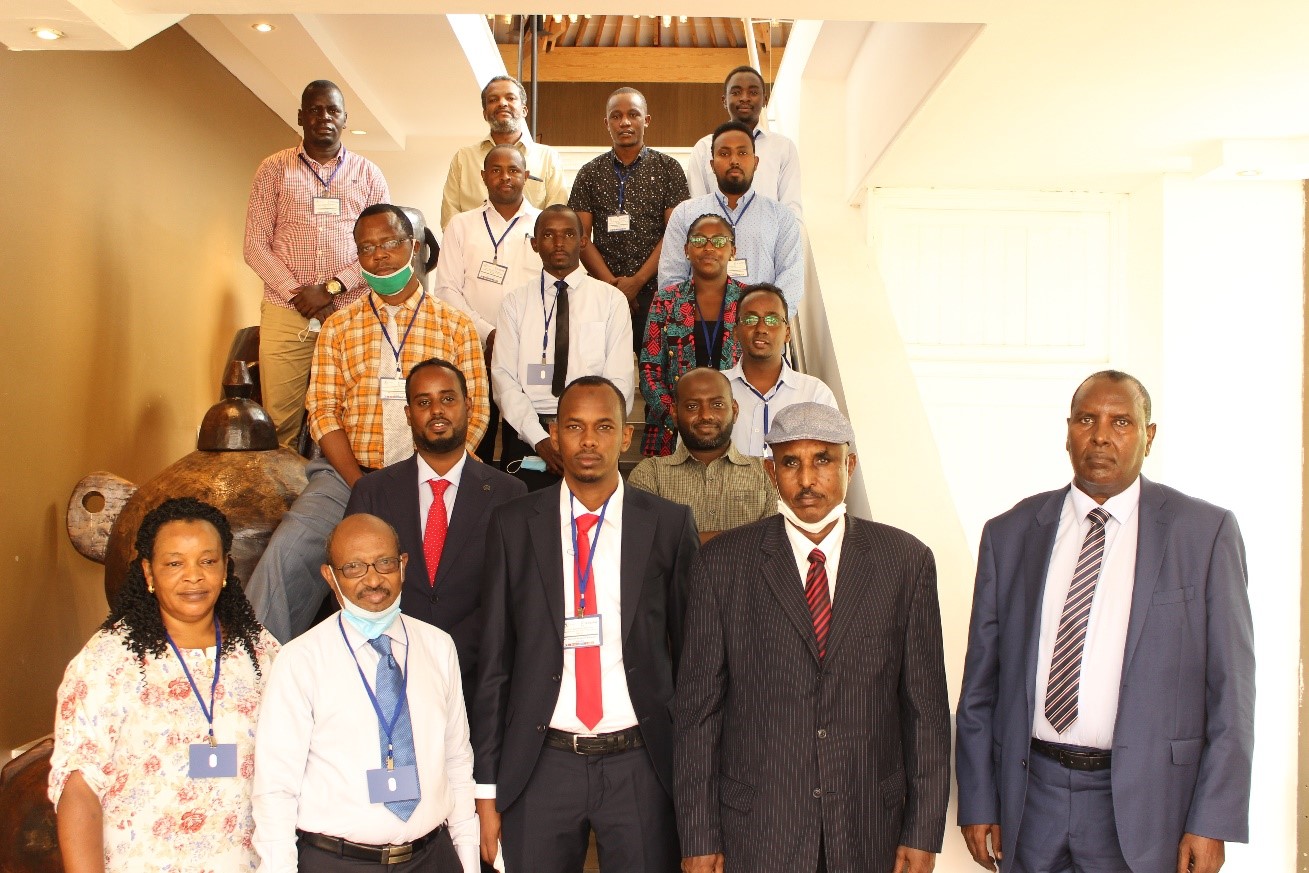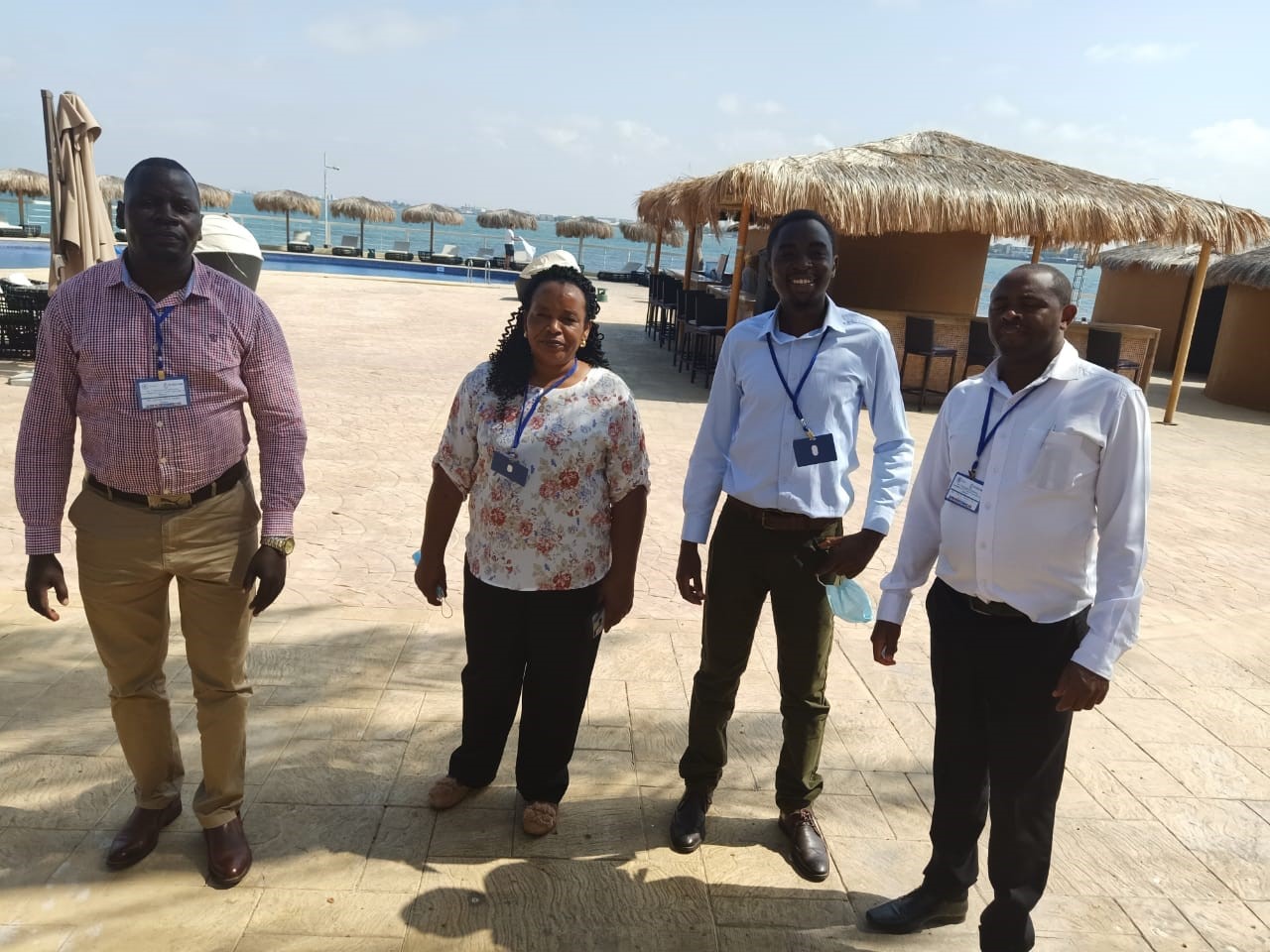Intergovernmental Authority on Development (IGAD) secretariat received financing from the Cooperation in International Waters (CIWA) towards the cost of the Regional Groundwater Initiative (RGI) project. The aim of the project is to assess the potential of groundwater resources in the IGAD region, considering their variability in space and time, to strengthen drought resilience and contribute to poverty reduction in the Horn of Africa.
IGAD contracted a consultant (Earth Water Limited -Kenya, Acacia Water -Netherland and Express Engineering Consultant Limited -Somalia) to undertake a feasibility study on Merti Aquifer for water supply development and management. The aquifer is a transboundary groundwater resource covering part of Kenya and Somalia. Therefore, the workshop was convened by IGAD and the consultant to present the findings to stakeholders for Kenya and Somalia on the desk studies undertaken and the proposed methodologies for the subsequent stages of the project implementation. The stakeholders reviewed the document and highlighted areas of concern, emerging issues and recommendation to the consultant for improvement.
As a key stakeholder in the project, the Ministry of Water, Sanitation and Irrigation (MoWSI) of Kenya recognized the RCMRD’s vast experience and role in the use of Remote Sensing (RS), Earth Observation (EO) data, and development of GIS tools, supporting different stakeholders and sectors in the region. Therefore, RCMRD was invited by MoWSI and IGAD, as part of the Kenyan delegation, to provide support in the review of the RS, GIS, general hydrology and hydrogeology aspects of the report.
In this regard, on April 22 and 23, 2021 RCMRD Officers Calvince Wara the Thematic Lead, Water and Hydroclimatic Disasters and his colleague, Felix Kasiti the Assistant Hydrologist, Water and Hydroclimatic Disasters went to Djibouti to review the inception report on the feasibility study for groundwater development and management in the Merti Aquifer (Kenya and Somalia). 
The delegations from Kenya and Somalia agreed on the critical role the groundwater resource plays in the region and the need for sustainable exploitation and management. The increased water demand under a changing and variable in the countries that are often drought stricken, there is need to quantify the available transboundary resources (surface and ground water) to enable proper planning on abstraction and use. The delegation assured the consultant of support with data and relevant reports and information regarding the current status of the aquifer.

The consultant proposed various methodologies for the quantification of surface water recharge and groundwater storage in the Merti Aquifer area (Kenya and Somalia), based on the use of EO data, among other methods, datasets that accurately and reliably map the extend and quantify the resource for sustainable development and management. Surface water and groundwater monitoring strategy for supply (recharge) and abstraction (withdrawals) for the aquifer were also provided.
Areas of inconsistencies in the inception report were highlighted for review and improvement. Among other methods, the use of Gravity Recovery and Climate Experiment (GRACE) satellite data (NASA and the German Aerospace Center- DLR joint mission) was proposed to the consult so as explore for historical changes of groundwater storage in the Merti Aquifer.
Given the dilution effect on the groundwater quality by Ewaso Ng’iro river, the use of coupled surface-groundwater model was proposed to the consultant so as to reliably quantify and characterize the nature of fluxes between the river recharge and the aquifer.
The following opportunities were identified for RCMRD to meet the growing demand for the use of EO in groundwater management: Support to the consultant and MoWSI on request for the provision and use of EOs data for the groundwater resource and abstraction as part of groundwater monitoring strategy. More discussions on the nature of data available are envisioned in the future as the project progress in the next phase of ESIA baseline studies.
Therefore, there is an opportunity to leverage the RCMRD collaboration on DRIP with Kenya RAPID and the Millennium Water Alliance (MWA) innovations with Sweetsene sensors for groundwater use monitoring in Kenya (Marsabit & Wajir). However more presentation on the nature of the sensors’ data (spatial and temporal resolution) and applicability to the Merti Aquifer will be require by the consultant in the near future. RCMRD will follow up on the this.














